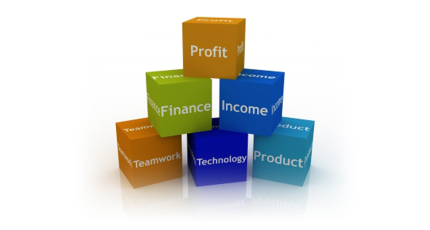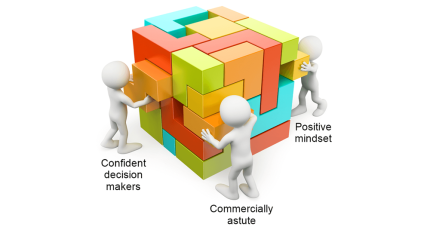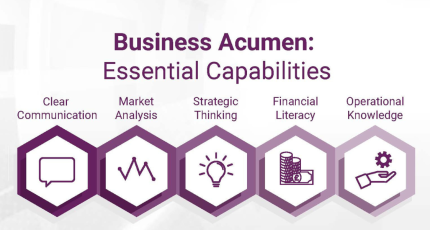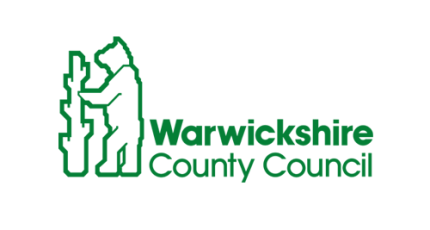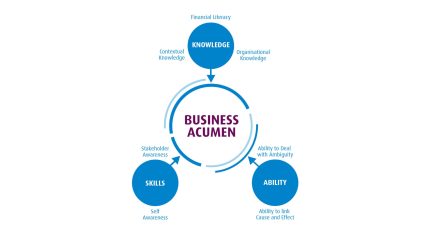Developing Business Acumen Skill
Are the decision makers in your organisation commercially aware? Do they understand the key principles of business? Through upskilling you can equip them, with the knowledge, experience and confidence to make better decisions.
Business acumen combines the knowledge, skill and experience to understand key business principles.
It is about applying that knowledge appropriately and effectively, while having the confidence to act even when outcomes are uncertain.
This capability is not limited to profit-driven businesses; it is equally valuable for non-profits, as all organisations aim to maximise their outputs and achieve their objectives efficiently. For businesses, this results in profit, while for non-profits, it leads to enhanced services and greater impact. Business simulation games offer an effective and engaging method of developing business acumen skill and commercial awareness within your teams.
Read Business Acumen video transcript
We define business acumen as
“The ability to take a ‘big picture’ view of a situation, to weigh it up quickly, make a logical, sound decision confidently, and influence others to agree with you in order to have a positive impact towards achieving the objectives of the organisation.”
It’s not one single skill or behaviour, it’s a mix of knowledge, skill and ability which is all informed by experience.
In recent years there has been an increasing emphasis on developing business acumen and commercial acumen amongst senior and middle management. However, in a world where decision-making is increasingly being pushed down to lower levels within organisations, or where an organisation is a network with only dotted management responsibility, it is increasingly important for all staff and contractors to understand how the organisation they are contributing to works and how their decisions affect success.
The level of detail may vary. For example, if you work as a store supervisor you might have little control over the strategic decisions of the company, but you have a big impact on the performance of your store. Commercial acumen, such as an awareness of the competitive landscape and the ability to judge what products will be attractive to your customers, would be a real benefit. Wherever the decision-maker sits within the organisation, increasing business acumen means there is a better chance any decision made will generate a good return. It also ensures that when faced with uncertainty, or no guidelines, individuals will be able to make wise choices.
Business Simulation Games offer a safe, low-risk environment for people to get the essential experience they need. Remember the quote, “The more I practice the luckier I get.” It’s all about developing memories that can be used to guide future action.
To find out more about how to improve the business acumen and commercial acumen in your organisation, then please contact us.
No single aspect of managerial skill is more important
"Don’t wish it was easier, wish you were better. Don’t wish for fewer problems, wish for more skills. Don’t wish for less challenge, wish for more wisdom." Jim Rohn.
Business acumen is a learned skill, and organisations with individuals who possess strong business acumen will share a common understanding of the opportunities and threats they face. This shared understanding enables them to make logical and commercially sound business decisions.
The good news is almost everyone has some degree of business acumen skill. In our personal lives, most of us shop around for a good deal or apply due diligence when making decisions about our personal finances or a large purchase. We can develop your people’s innate skills to benefit your organisation.
Elgood Effective Learning developing your competitive advantage
Elgood Effective Learning leverages years of expertise in designing tailored simulation games for businesses, educational institutions, and nonprofits, helping participants strengthen critical business knowledge and skills.
To encourage people to use and develop business acumen skill and commercial awareness, organisations need to help their staff identify which decisions they have control over and to understand how their choices impact on the performance of the organisation.
As a starting point, all staff should be encouraged to develop their understanding of how the organisation works. What is its primary purpose? Who are its target customers and what do they want? How can the organisation provide something more attractive than their competitors in an efficient and effective manner?
We can work with you to develop this skill and understanding throughout your organisation. In a competitive market organisations which foster these skills will have a competitive advantage.
If you work for the public sector or a charitable organisation ‘business acumen skill’ might not be a familiar term. However, all organisations must balance their books whether the money comes in from sales, grants or donations. Every organisation wants to get as much bang for its buck as possible.
Our business simulation games provide experiential learning allowing individuals to engage in decision-making, observe outcomes, and refine strategies, developing your people’s business acumen skill and commercial awareness. This interactive approach promotes discussion, reflection, and skill development.
Our games support all stages of the learning cycle allowing participants to:
- Develop confidence; a training activity is a relatively risk-free environment.
- Build the link between cause and effect; participants will be able to see how their decisions impact on performance.
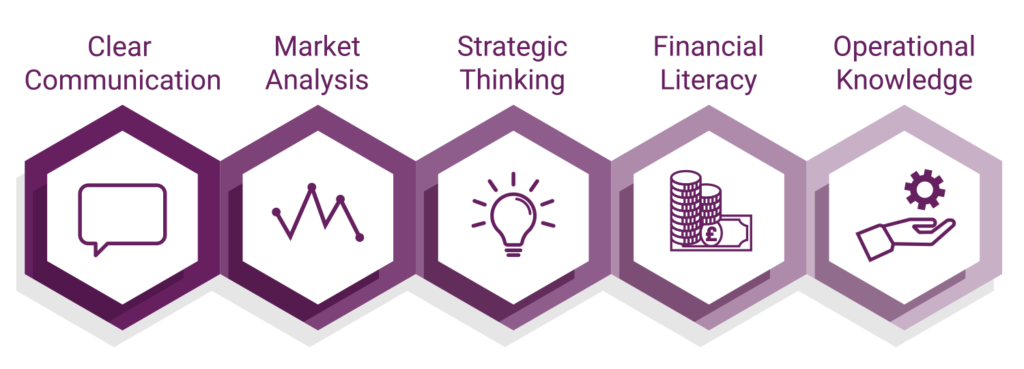
Our business simulation games can be purchased and used in-house with a member of your training team or a senior manager taking the facilitation role. If you do not have an experienced facilitator, Elgood can do this for you.
If you are unable to find a product that suits your requirements you might like to consider having a game or business simulation designed to meet your specific need.
Business Acumen Frequently Asked Questions
What is Experiential Learning?
This refers to learning that an individual derives from experience. The term comes from the book Experiential Learning: experience as the source of learning and development published by David A Kolb (Englewood Cliffs, Prentice Hall, 1984).
In the book Kolb explained how a person learns through a cycle of discovery and experience. The Kolb learning cycle has four stages.

In situations where it is difficult for people to gain live experience the use of games and simulations can be used to mimic reality. The activity provides the active experimentation and concrete experience and the individual can then learn through reflective observation and abstract conceptualisation with the potential of going around the circle again to test out their new-found knowledge.
Retention rates from activities that incorporate experiential methods result in significantly higher retention rates – 75% from practice by doing in comparison to 5% from a lecture.
Research by National Training Laborotries.
What is a commercial acumen?
Commercial acumen is a subset of business acumen. Business acumen is a combination of knowledge and skill informed by experience: knowledge about key business issues, the skill to apply that knowledge, and the confidence to take action informed by past experiences. Commercial acumen focusses on a smaller number of areas primarily the market in which the organisation operates and the customers it serves. What do they want? It includes knowing something about the competitors so that you can offer potential customers what they want as efficiently and cost effectively as possible.
Commercial acumen does not necessarily include the strategic aspects of the company, it’s vision and expansion plans. If focusses more on the actions required today and tomorrow to ensure the organisation is commercially successful.
Many organisations will use the words acumen and awareness interchangeably. We prefer the word acumen because it implies the ability to take action. A person can be aware of a situation but if they are unable to take action then the knowledge is useless.
We hope this answer also helps with the question what is commercial awareness?
Read our guide ‘Business Acumen or Commercial Acumen – What’s the Difference?‘
What is a business acumen?
We define Business Acumen as “The ability to take a ‘big picture’ view of a situation, to weigh it up quickly, make logical, sound decisions confidently, and influence others to agree with you in order to have a positive impact towards achieving the objectives of the organisation.” It is a combination of knowledge and skill informed by experience: knowledge about key business issues, the skill to apply that knowledge, and the confidence to take action informed by past experience.
For more information about Business Acumen please read our white papers Business Acumen: What is it? Who needs it? How do you acquire it? and Business Acumen: the key to competitive advantage in uncertain times.
Many organisations will use the words acumen and awareness interchangeably. We prefer the word acumen because it implies the ability to take action. A person can be aware of a situation but if they are unable to take action then the knowledge is useless.
We hope this answer also helps with the question what is business awareness?
Why is business acumen important?
Organisations populated by individuals with strong business acumen will have a shared understanding of the opportunities and threats facing the organisation and will be able to come up with a logical and coordinated response. Every individual’s actions and decisions will be strategically aligned with those of the organisation.
Individuals are able to make appropriate decisions because:
- They see the bigger picture and understand how each part of the organisation fits together.
- They have the skills to deal with complexity and uncertainty. They can process the available relevant information and have the confidence to reach a conclusion.
Individuals who possess business acumen will take actions for the benefit of the organisation. For example:
- Decisions will be made to ensure the best return for any effort expended. This might be a financial investment or the application of man hours to a problem. These actions will influence top-line revenue growth.
- Individuals will have the knowledge to be able to bridge the communication gap within the organisation by translating the decisions made at higher levels into understandable policies and procedures for their teams.
- When faced with a complex issue where no solution appears ideal, they will have the skill to analyse the information they do have, the confidence to make rational assumptions to fill in the gaps, and the courage to make a decision. As such the organisation will avoid long periods of inactivity and uncertainty and will have the chance to grab future opportunities – maybe before the competitors!
For more information about Business Acumen please read our white papers Business Acumen: What is it? Who needs it? How do you acquire it? and Business Acumen: the key to competitive advantage in uncertain times.
Who needs business acumen?
Business acumen is essential for all senior and middle managers – irrespective of whether they work for a commercial organisation, a Government organisation or in the third sector. The argument is made succinctly by Ram Charan.
“No single aspect of managerial skill is more important. If the management’s assessment of the external landscape, how patterns of converging and diverging trends fit together, is inaccurate, the company’s strategic positioning will be wrong. Decision makers will be tempted to develop the wrong capabilities, hire the wrong people, or enter the wrong markets.”
We believe there is a strong case for all members of an organisation to have a level of knowledge and skill which enables them to take appropriate action. This means that individuals need to be given the opportunity to experience situations which might be outside their immediate sphere of influence, as their actions will ultimately impact on the organisation at some level.
Ram Charan – Sharpening your business acumen
Contact us today to explore how we can work together towards brilliant outcomes - call us today on 0118 982 1115
Our top products for developing business acumen skill
All of these simulations will help develop business and commercial acumen. However, the focus for each simulation is different. We explore the difference between business acumen and commercial acumen in this post. Do either of our explanations describe your issue? A key part of selecting the right product is knowing the outcome you desire. If you would like to talk about which simulation might be right for you, please get in touch with us.
Elgood Effective Learning - for improved performance - call us today on 0118 982 1115
Insights
As we face a period of unprecedented change for all organisations there is a real need for both commercial acumen and business acumen throughout the organisation. Even before the pandemic, we had been witnessing the closure of hundreds of stores and restaurants across the high street. They’ve felt the force…
The skills and capabilities that constitute business acumen and the competitive advantage it gives Though I don’t follow football, I’ve been intrigued by the success Ryan Reynolds and Rob McElhenney have achieved at the football club Wrexham AFC. The club was promoted to League Two after a 15-year hiatus. Success…
Warwickshire County Council’s radical approach to reassigning skill for future success Like most councils, Warwickshire County Council (WCC) faced the challenge of managing more complex social needs, including those associated with an aging population, during a time of extraordinary budget cuts and digital transformation. Staying efficient was becoming increasingly difficult…
Business Acumen is a combination of knowledge and skill informed by experience: knowledge about key business issues, the skill to apply that knowledge, and the confidence to take action informed by past experiences. At Elgood our business acumen definition definition is: The ability to take a ‘big picture’ view of…

